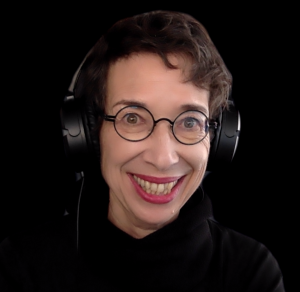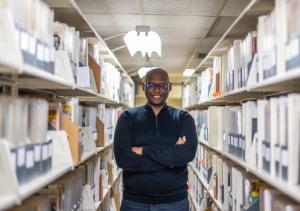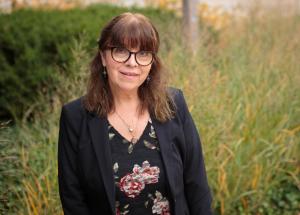Many people don’t realize that MSU has an amazing “ecosystem” of immersive visualization technologies available to students and faculty: the Abrams Planetarium Sky Theater, MSU Libraries Digital Scholarship Lab’s 360 Room, and the MSU Museum’s Science On a Sphere. Together, these technologies offer unique opportunities for teaching, learning, and research.
In 2020, co-conveners from each location brought together 14 graduate students and 7 faculty members to participate in a one-week Summer Institute sponsored by the Graduate School. Participation in the Institute required completion of an application. Applicants were invited from across the entire university, with all disciplines and interdisciplinary perspectives welcome. Graduate students could apply individually or with a faculty member. A $500 fellowship was awarded to each graduate student.
This virtual summer institute allowed the selected Data Visualization Graduate Fellows and their mentors to explore the pedagogic possibilities of the three large-scale digital learning technology platforms available at MSU. Participants learned about the affordances and the limitations of each technology and how they are best suited for different types of data representation. Graduate student participants were expected to develop a teaching module for use in an upcoming course they are teaching, capitalizing on one or more of the platforms to engage students in novel forms of active learning in immersive digital arenas.
Because they participants were unable to use the technologies in person due to the pandemic, the co-conveners provided virtual experiences. Everyone experienced virtual planetarium and Science On a Sphere shows and a “tour” of the 360 Room. In addition to learning about the technology, participants received instruction in 360 Camera use, choropleth mapping and searching, Camtasia, and Google Cardboard. Special speakers led discussions about pedagogy and virtual reality.
"There are some amazing technologies on campus that have so much potential to help make learning come alive in immersive ways,” says Shannon Schmoll, co-convener and director of the Planetarium. “Each technology, the planetarium, 360 room, and Science On a Sphere have complementing strengths. Coming together with the amazing folks on campus in order to explore incredibly creative ways of making the technology help teach is always fun and engaging. It helps me push my understanding of what my system can do and I always learn more about my colleagues work." Amanda Tickner, co-convener who works with library patrons the 360 Room, summed up the importance of the Summer Institute: “Collectively exploring the potential of immersive displays for education and sharing ideas during the Summer Institute was a valuable and exciting experience.”
Co-Conveners
Abrams Planetarium - Dr. Shannon Schmoll
MSU Libraries - Terence O’Neill and Dr. Amanda Tickner
MSU Museum – Dr. Denice Blair and Teresa Goforth
Special Speakers
Dr. Sarah Evans - Integrative Biology
Prof. Stacey Fox - Journalism
Dr. Jon Frey - Art, Art History, and Design
Dr. Laura Smith - Art, Art History, and Design
Nick VanAcker - MSU Museum
Participating Faculty

Dr. Pia Banzhaf - Linguistics & Germanic, Slavic, Asian and African Languages

Dr. Julian Chambliss - English; Consortium for Critical Diversity in a Digital Age Research (CEDAR); Val Berryman Curator of History, MSU Museum; Co-Director, Digital Humanities and Literary Cognition Lab (DHLC)
Dr. Ahmet H. Kirca - Director of International Business Center and Center of International Business Research (CIBER), Doctoral Program Director in Marketing

Dr. Ruth Shillair - Media & Information Studies, College of Communication Arts & Sciences
Additional faculty members participated from Arts, Cultural Management, and Museum Studies; Mathematics; and Plant, Soil and Microbial Sciences.
Participating Graduate Fellows
- Stanley Berly - Plant Pathology
- Gaurav Chauda - Mechanical Engineering
- Daniel Fandino - History
- Shruti Khandelwal - Planning, Design and Construction
- Tianyi Kou - Linguistics & Germanic, Slavic, Asian and African Languages
- Grace Krause - Anthropology
- Will Langford - Teacher Education
- Patrick McDavid - Packaging
- Juan Carlos Rico Noguera - Anthropology
- Lee Melvin Peralta - Teacher Education (PhD) & Statistics and Probability (MS)
- Justin Wigard - English
Additional students participated from Communication Arts & Sciences, Forestry, and Teacher Education.


